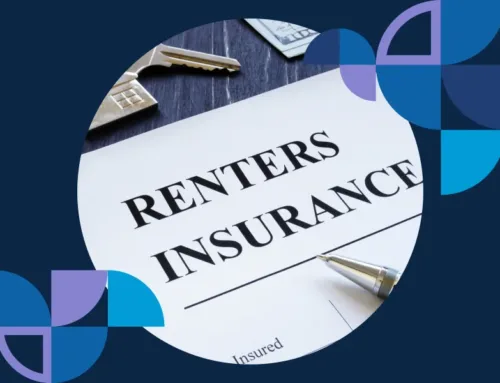Renting a home comes with its own set of financial and insurance considerations that are often overlooked. Whether you’re a first-time renter or seasoned resident, understanding how to manage your finances and protect your belongings can save you from unexpected headaches.
This article provides essential tips on budgeting effectively, choosing the right renter’s insurance, and making informed decisions that keep your rental journey smooth and secure. Dive into these practical strategies to not only safeguard your wallet but also enhance your renting experience.
Budgeting and Saving Strategies for Renters
Mastering the 50/30/20 Rule
One effective way to keep your finances in check as a renter is to adopt the 50/30/20 budgeting rule. This straightforward method involves dividing your after-tax income into three categories:
- 50% Essentials: Allocate half of your after-tax income to necessities like rent and utilities.
- 30% Wants: Set aside nearly a third for personal desires and leisure activities.
- 20% Savings: Dedicate the remaining portion to savings or debt repayment. Prioritizing expenses in this manner ensures essential costs are covered first, alleviating financial pressure.
Establishing an Emergency Safety Net
Unexpected expenses can arise at any time, whether it’s a broken appliance or sudden car repairs. To avoid the stress of these unforeseen costs, it’s wise to build an emergency fund. Aim to set aside a portion of your income each month into this fund, ideally enough to cover at least three to six months of living expenses.
This financial buffer can help you manage emergencies without relying on credit, keeping you debt-free in the long run.
There’s more that you can do to prepare for emergencies as a renter.
Investing in Your What’s Next
Even with the monthly commitment of rent, it’s crucial to save for your future. Long-term financial goals, whether it’s retirement or buying a home, require early and consistent contributions. Look into setting up an Individual Retirement Account (IRA) or contributing to your employer’s retirement plan, if available. These savings vehicles offer tax advantages and can significantly boost your financial growth over time.
Implementing these strategies allows renters to maintain a balanced financial lifestyle, ensuring both immediate stability and future security.
Smart Spending and Avoiding Debt Traps
Keeping your finances in order requires vigilance, especially in areas where it’s easy to overspend:
- Expense Tracking: Regularly review where your money goes, focusing on recurring but non-essential expenses like streaming subscriptions or frequent dining out.
- Prioritize Essentials: Always differentiate between needs and wants, ensuring that your essential expenses are covered first to prevent financial overreach.
The Benefits of Renters Insurance
Renters insurance is a crucial, yet often overlooked, aspect of financial planning:
- Protection for Belongings: It covers loss or damage to personal property due to theft, fire, or other mishaps.
- Liability Coverage: Offers protection against claims if someone is injured in your rental or you cause property damage.
- Cost-Effectiveness: The cost of renters insurance is generally low compared to the extensive financial protection and peace of mind it provides.
These smart financial practices help renters manage their money effectively, avoiding unnecessary debt and enhancing their financial stability.
Building a Strong Credit History as a Renter
Many renters don’t realize that their rental payments can positively impact their credit scores. Here’s how to leverage renting to build credit:
- Rent Reporting Services: Sign up for a service that reports your rent payments to credit bureaus. Consistent, on-time payments can help build your credit history.
- Landlord Reporting: Ask if your landlord uses a rent payment platform that reports to credit bureaus. If not, you can recommend adopting one.
Strategic Financial Behaviors
Engage in practices that enhance your credit profile:
- Credit Utilization: Keep your credit card balances low relative to your credit limits. High utilization can negatively affect your credit score.
- Diverse Credit Types: Consider a mix of credit types, such as retail accounts, credit cards, and installment loans. This diversity can positively influence your credit score.
- Prompt Payments: Always pay your credit obligations on time. Late payments can severely damage your credit score, undermining the benefits of other positive behaviors.
Engaging in these financial practices helps renters not only secure housing but also strengthen their overall financial stability and creditworthiness.
Renting a home can sometimes put individuals in a tight financial spot, especially during economic downturns or personal financial hardships. Fortunately, a variety of resources are available to assist renters in maintaining stability:
Government Assistance Programs
Various federal and state programs offer financial aid to renters:
- Rental Assistance: Programs like the Emergency Rental Assistance (ERA) provide funds to help cover rent and utility bills for those affected by economic instability.
- Housing Vouchers: Section 8 housing vouchers are designed to help low-income families, the elderly, and the disabled afford safe and decent housing in the private market.
Support from Non-Profit Organizations
Many non-profits work specifically to help renters navigate financial difficulties:
- Local Charities: Organizations may offer emergency financial assistance, including help with rent or utility payments.
- Counseling Services: These organizations often provide free financial counseling to help renters budget, manage debt, and plan for future financial stability.
Insurance For Renters—Why It Matters
Renters insurance is a real game-changer if you’re living in a rental. Think of it as a safety net that catches you financially if something goes wrong, like your laptop getting stolen or someone having an accident in your place. It’s about protecting your stuff and covering your back without breaking the bank.
Essential Points to Know About Renters Insurance:
- Covers Your Belongings: From tech gadgets to your favorite sneakers, it helps replace your stuff if lost or damaged.
- Liability Protection: If someone gets hurt in your rental, it handles potential legal expenses.
- Surprisingly Affordable: The cost is usually pretty manageable—about what you’d spend on a couple of coffee runs each month.
- Not Covered by Landlord: Many folks assume their landlord’s insurance has them covered, but that’s not the case.
- Check Annually: Life changes fast. Reviewing your policy yearly ensures it always matches your current situation.
Choosing the right renters insurance isn’t just ticking a box; it’s about making a smart choice for your peace of mind. Comparing what different insurers offer and understanding exactly what you’re signing up for can save you a lot of headaches later.
Make it a habit to reassess your coverage every year, especially if you’ve made big purchases or moved to a new place. This way, you keep your safety net strong and ready, just in case.
In Conclusion
Managing your finances as a renter can be straightforward with the right approach. By learning effective budgeting strategies, understanding how to build a strong credit history, and knowing where to find help during tough times, you can keep your financial life stable and on track.
Remember, there are many resources available—from government aid to non-profit organizations—that can offer support when you need it. Staying informed and proactive about your financial options is key to making renting a positive step towards your financial independence.








